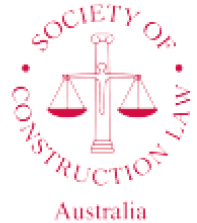A crucial update has emerged in the administration of not-for-profits. To ensure your NFP maintains its income tax-exempt status, read on for essential details.
What are the changes?
From 1 July 2023, non-charitable NFPs with an active Australian business number (ABN) self-assessing as income tax exempt need to lodge an annual NFP self-review return.
The first NFP self-review return must be lodged is for the 2023–24 income year and is due between 1 July and 31 October 2024.
A new return must be lodged for each subsequent income year. If a return is not lodged, NFPs may become ineligible for an income tax exemption and consequences may be imposed.
Why is this change being implemented?
The measure is designed to enhance trust and confidence in the sector by ensuring only eligible NFPs access income tax exemptions, and that NFPs operate on a level playing field. Where only simple reporting requirements had to be met before, the process of reporting is now quite extensive.
What does it mean to self-assess?
The NFP self-review return helps you evaluate your organisation’s purpose and activities against specific criteria. This process assists in determining your basis for self-assessing as income tax-exempt and reporting this to the ATO.
‘Self-assess’ means your organisation can independently determine if it is exempt from or subject to income tax.
Let’s break this down in more detail.
-
Determine if Your Organization is a Not-for-Profit or Charity
Not-for-Profits (NFPs) are organisations that do not operate for the profit, personal gain or other benefit of particular people, and charities are a sub-category of NFPs. With assessing eligibility for income tax exemption, you must first establish whether it is an NFP, or also classifies as a charity. To do this, you must look at the requirements contained in the Charity Act 2013 (Cth) (Charities Act):
A charity is an entity that: is not for profit, has only charitable purposes (meaning that it falls under one the 12 sub-categories of a charity), doesn’t fall under either of two disqualifying purposes, and is not an individual, a political party, government entity, or social club.
If your organisation does not fall under the definition set out above in the legislation, it is a NFP.
2. Understand Your Legal Structure and Required Actions
If your organisation is an NFP but not a charity, it can self-assess its income tax status, and does not need to be endorsed by and receive confirmation from the ATO for this exemption. However, if you are a charity, you must be registered with the ACNC and be formally endorsed by the ATO to qualify for income tax exemption.
Your not-for-profit organisation may have a charitable purpose (as set out under the Charities Act), and therefore be eligible to register as a charity with the ACNC (if it complies with all the other requirements as set out by the Charities Act). Even if it does not register as a charity with the ACNC, it still has qualities that fall under what is considered a charity. Therefore, it will not be eligible to self-assess as income tax exempt, and it will be taxable. Therefore, you must register it with the ACNC to be endorsed by the ATO for income tax exemptions.
If you are unsure if your organisation’s purposes align with one or more of these charitable purposes, consulting its governing document, activities, history, and how it uses its funds may give you some guidance.
There are some types of organisations that are not required to lodge an annual NFP self-review return. For more information, please visit the ATO website at this link: https://www.ato.gov.au/businesses-and-organisations/not-for-profit-organisations/statements-and-returns/in-detail/reporting-requirements-to-self-assess-income-tax-exemption/who-doesnt-need-to-lodge
The ATO recognises 8 categories of NFP organisations that can self-assess eligibility for income tax exemption. These categories are:
- Community organisations
- Cultural organisations
- Educational organisations
- Employment organisations
- Health organisations
- Resource development organisations
- Scientific organisations
- Sporting organisations
Therefore, if your organisation meets all the requirements of any of the above types of exempt entities, you will be eligible to self-assess and lodge the self-review return.
3. Assess Your NFP’s Income Tax Exemption Status
If you qualify to lodge an NFP self-review return, you can determine if your organization is eligible for income tax exemption. If you are income tax exempt, your organization will not need to pay income tax or file income tax returns unless requested by the ATO. If not, your organization will be taxable and required to file income tax returns and pay income tax.
If you need help understanding what this means for your charity, please contact Warlows Legal today using the contact information below.
This article provides a brief overview of the new changes. For more detailed information, please visit the ATO and ACNC websites, or click on the links below to access the specific pages related to these updates.
Not-for-profits – enhancing the transparency of income tax exemptions: https://www.ato.gov.au/about-ato/new-legislation/in-detail/not-for-profit/enhancing-the-transparency-and-integrity-of-not-for-profits
Does your not-for-profit need to pay income tax?: https://www.ato.gov.au/businesses-and-organisations/not-for-profit-organisations/your-organisation/does-your-not-for-profit-need-to-pay-income-tax
Organisations that have been self-assessing as income-tax exempt: https://www.acnc.gov.au/organisations-have-been-self-assessing-income-tax-exempt
How to prepare an NFP self-review return: https://www.ato.gov.au/businesses-and-organisations/not-for-profit-organisations/statements-and-returns/how-to-prepare-a-nfp-self-review-return?redirected_NFPselfreviewguide=
Who doesn’t need to lodge: https://www.ato.gov.au/businesses-and-organisations/not-for-profit-organisations/statements-and-returns/in-detail/reporting-requirements-to-self-assess-income-tax-exemption/who-doesnt-need-to-lodge




